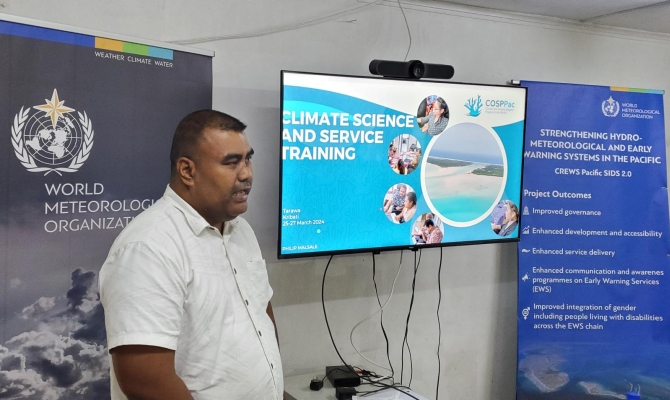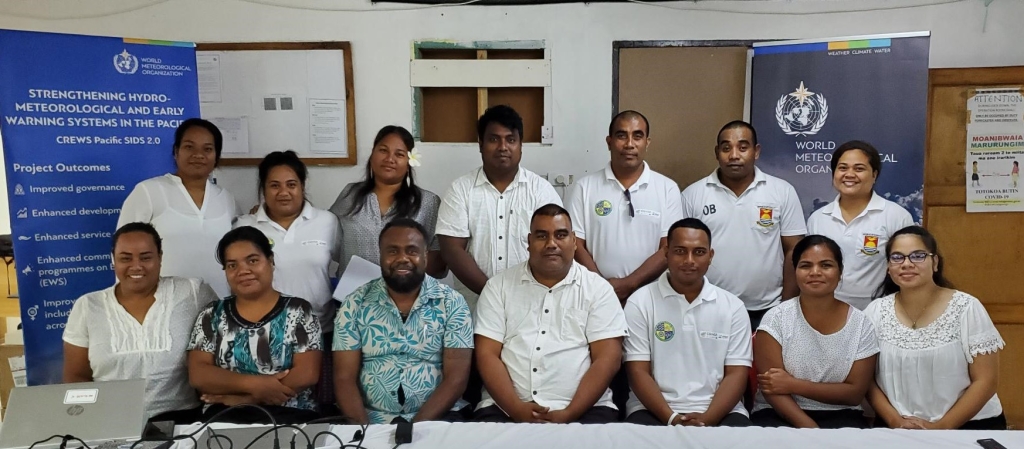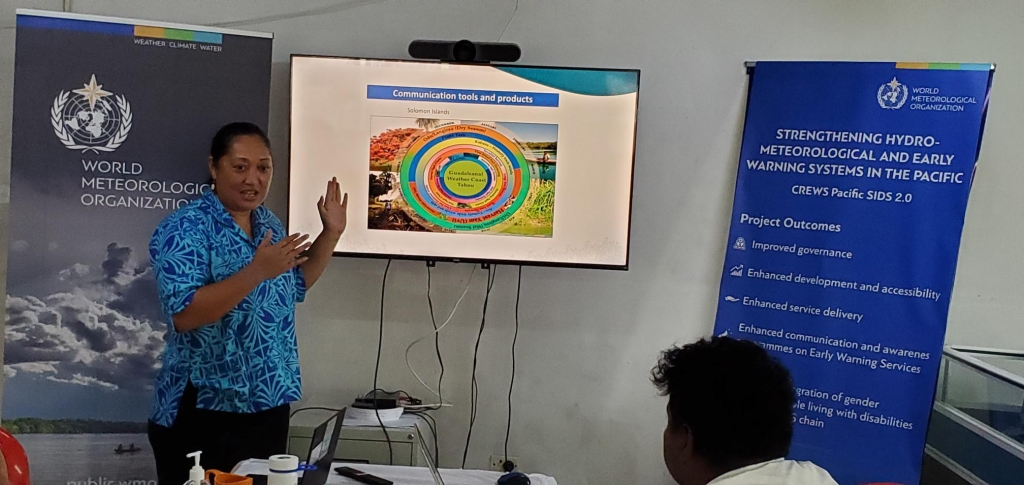
27 March 2024, Tarawa, Kiribati - Thirteen government officials of Kiribati have been empowered to serve their country through the Kiribati Meteorological Service (KMS) with basic climate science and services skills.
The work to build their capacity to understand climate science and to know how to produce seasonal outlooks was done through a Kiribati Climate Science and Services training held at the Kiribati Meteorological Services in Tarawa, from 25 - 27 March 2024.
The training, attended by seven females and six males, was delivered by the Secretariat of the Pacific Regional Environment Programme (SPREP) through the Climate Risk and Early Warning Systems Pacific SIDS (CREWS) and the Climate and Oceans Support Programme in the Pacific (COSPPac) project, in response to a request from the KMS.
Kiribati Meteorological Services Director, Mr Ueneta Toorua, said the work to continue to build the capacity of KMS officers to serve the small Pacific country through the Met service is extremely important given the atoll’s vulnerability to extreme climate events.
“The times are changing and new methodologies are developed across the world and KMS needs to be updated with the latest products and methodology hence this training,” said Mr Toorua. “This training is very important for new recruits to build their capacity to know about the climate science and know how to produce seasonal outlooks in case senior officers are out from office.”

The training is in line with the strategy of the KMS and Kiribati Government.
“KMS needs to be in the front line to help Kiribati communities to build resilience to climate extreme events and climate change. We grow as a team and this will be reflected in our service.”
One of the participants, Ms Tekaatu Uribano, welcomed the opportunity to learn new skills during the training.
“I have found the chance to learn new skills from this training extremely useful and I look forward to using them to do my job,” said Ms Uribano. “I have enjoyed learning during the discussion of the Pacific climate drivers and other aspects of the workshop and I am of course looking forward to getting my certificate of participation which will enable me to serve at KMS with basic climate science and services skills.”
The climate training is part of a series of trainings planned for Kiribati Met Services that will be carried out to support capacity development and upskill staff within KMS.
“Our work at SPREP is to support all our member countries in building a more resilient Pacific environment and building the capacity of officials in the Kiribati Met service to be able to provide improved services for their community, this is a key part of that work,” said SPREP’s Traditional Knowledge Adviser, COSPPac 3, Ms Siosinamele Lui.
SPREP’s Senior Climatologist Officer, COSPPac 3, Mr Philip Malsale added that an important part of the workshop was helping the new KMS officers understand KMS responsibilities under the different divisions.
“One of the key goals for this training was to work with new officers to help them to know about the existing climate products and what their responsibilities are in relation to these. You need to know the needs of your sectors in order to better serve them,” he said.
“There are lots of climate science information now available in the countries, but we need to start tailoring this information to help decision making at the sectoral and community level. We have already started implementing this approach, but there is more to be done to reach all sectors.
“If we continue on this path, KMS will fulfil its role in empowering the communities to be resilience which is the main goal of KMS and Kiribati government.”

The Climate and Oceans Support Programme in the Pacific (COSPPac) exists to help different communities interpret climate, oceans and tidal data to produce valuable and relevant life-changing climate services.
Funded by the Australian Government through the Department of Foreign Affairs and Trade, and New Zealand Government through the Ministry of Foreign Affairs and Trade, it is implemented by the Bureau of Meteorology (BOM), Secretariat of the Pacific Regional Environment Programme (SPREP), Geoscience Australia (GA), National Institute of Water and Atmospheric Research (NIWA) and the Pacific Community (SPC).
COSPPac works with Pacific countries on projects that provide information for Pacific communities to prepare for, and mitigate the impacts of severe climate, and oceanographic events.
The training was delivered by SPREP’s Senior Climatologist Officer, COSPPac 3, Mr Philip Malsale and SPREP’s Traditional Knowledge Adviser, COSPPac 3, Ms Siosinamele Lui.